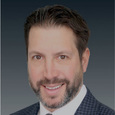No Partners, No Problem for This Boutique Law Firm
Jason Sieminski of Spruce Law said his goal was to have a firm where lawyers "wouldn't be pitted against each other for compensation."
April 25, 2018 at 06:08 PM
6 minute read
 Philadelphia skyline. Photo: Shutterstock.com
Philadelphia skyline. Photo: Shutterstock.com Like many boutique law firms and spinoffs, Spruce Law Group promises clients Big Law expertise with the accessibility and lower costs a small firm offers. But it's taken an unconventional step toward that end: no partners.
Among other things, that means there's no partner profit-sharing. And the 14-lawyer firm is not named after its founders, or after lawyers who brought in big books of business. Instead, it's named after the Philadelphia street where it's located.
“The concept was to be more like a corporation … to seem to our clients more of a peer,” said firm founder and CEO Jason Sieminski. “We wanted to attract lawyers who wanted to team under a common flag and not the name of a former partner or a current partner.”
'Something Different'
Sieminski, a real estate and finance lawyer, left Cozen O'Connor and started Spruce in 2010, “working out of a cubby at the Union League,” he said. The recession was in full swing.
 Jason Sieminski.
Jason Sieminski. “I needed to work in a platform that was exceedingly efficient for my real estate and finance clients,” Sieminski said. “Rates at that time were a considerable issue.”
Over time, the firm grew by word of mouth, he said.
People were attracted to the idea that “they wouldn't be pitted against each other for compensation,” Sieminski said. “There really was a thirst out there for something different.”
Margaret DeSimone joined Spruce about two years ago from an in-house position at Sunoco. She had a lot of options at the time, she said, and she wanted to go somewhere that would encourage efficient practices.
“As a former in-house counsel I realized legal spend was very important,” she said. “The Spruce model really appealed to me.”
Thinner Margins as a Selling Point
So what was that something different? Not just a name.
The firm does not have billable hour requirements, though it does have individualized production budgets for each lawyer, which take working hours and origination efforts into account. In addition to those two factors, the compensation formula also involves rewards for lawyers who win work for their colleagues through cross-marketing efforts.
Sieminski said it's key that the firm's lawyers, though often coming from partner-level positions at other firms, do not get their compensation from sharing profits. As a result, he said, the firm can operate on a thinner profit margin, which is good for the client.
“Per lawyer costs are not exceedingly less, drastically less than a larger firm,” he said. But “a large portion of the fee isn't reserved for partnership profits. … That's the real savings.”
Because lawyers don't feel pressured to meet a billable hours requirement or preserve a wide profit margin, Sieminski said, Spruce is better able to offer alternative fee structures. Those include volume-based discounts, not-to-exceed arrangements, monthly retainers, success fees and other approaches, he said.
Clients are increasingly seeking those options, Sieminski said, particularly pharmaceutical clients.
Removing billable hours requirements also frees lawyers to collaborate more efficiently, DeSimone said. It encourages lawyers to turn to colleagues who have a specific expertise without later including them in every aspect of the matter, she said. That saves lawyers time—and clients money.
“You don't need to come equipped to every meeting with a handful of lawyers,” DeSimone said. “A lot of time we're able to arrive at a solution more quickly, efficiently, cost-effectively.”
The incentive to collaborate and get work for colleagues creates a better bond with the client too, she said.
“If your client pulls you in when they're forced to, I don't think you can help them as much,” DeSimone said. “When you work well with your client day to day, you become a trusted partner with them, you can only do better for your client going forward.”
Dan Scott, a legal recruiter at Angott Search Group in Michigan, said Spruce's model highlights a trend toward more formula-based compensation systems.
“The spartanness of it is unique,” he said of Spruce's model. “It is a sign of things to come.”
Scott said the traditional law firm compensation model, based on years of service to the firm, is failing. Instead, partners should be able to pull out a calculator and know what their compensation will be, based on the amount of work they do and bring into the firm, he said.
Spruce's model, Scott said, is “the new way on steroids.”
Looking to Grow
It's been about eight years since Sieminski set out on his law firm experiment. He now has a lawyer head count of 14 and 23 total people working at the firm, including staff.
The firm's billed fee revenue has grown by 25 percent or more year-over-year in the past three years, he said, and new matter openings grew by 20 percent in 2017. Nine of the firm's top 10 clients turned to Spruce for matters in multiple practices in 2016 and 2017, he said.
Sieminski said he plans for the firm to have 20 to 30 lawyers in the near future.
“The lawyers who are doing exceedingly well here are those who were able to collaborate with their colleagues and cross-market,” Sieminski said—even if they don't necessarily have a huge book of business.
“A modest book of $400,000 to $700,000 can go a long way in terms of their comp,” he said.
Still, as the firm grows, he said, he's looking to add to top-line revenue by bringing in lawyers with established practices, including potentially an existing group of litigators and paralegals.
“What we're doing is working, and it's a totally different structure,” Sieminski said. “We're looking to grow and continue to do what's working on a larger scale.”
This content has been archived. It is available through our partners, LexisNexis® and Bloomberg Law.
To view this content, please continue to their sites.
Not a Lexis Subscriber?
Subscribe Now
Not a Bloomberg Law Subscriber?
Subscribe Now
NOT FOR REPRINT
© 2025 ALM Global, LLC, All Rights Reserved. Request academic re-use from www.copyright.com. All other uses, submit a request to [email protected]. For more information visit Asset & Logo Licensing.
You Might Like
View All


'The World Didn't End This Morning': Phila. Firm Leaders Respond to Election Results
4 minute read
Settlement With Kleinbard in Diversity Contracting Tiff Allows Pa. Lawyer to Avoid Sanctions
3 minute readTrending Stories
- 1Uber Files RICO Suit Against Plaintiff-Side Firms Alleging Fraudulent Injury Claims
- 2The Law Firm Disrupted: Scrutinizing the Elephant More Than the Mouse
- 3Inherent Diminished Value Damages Unavailable to 3rd-Party Claimants, Court Says
- 4Pa. Defense Firm Sued by Client Over Ex-Eagles Player's $43.5M Med Mal Win
- 5Losses Mount at Morris Manning, but Departing Ex-Chair Stays Bullish About His Old Firm's Future
Who Got The Work
J. Brugh Lower of Gibbons has entered an appearance for industrial equipment supplier Devco Corporation in a pending trademark infringement lawsuit. The suit, accusing the defendant of selling knock-off Graco products, was filed Dec. 18 in New Jersey District Court by Rivkin Radler on behalf of Graco Inc. and Graco Minnesota. The case, assigned to U.S. District Judge Zahid N. Quraishi, is 3:24-cv-11294, Graco Inc. et al v. Devco Corporation.
Who Got The Work
Rebecca Maller-Stein and Kent A. Yalowitz of Arnold & Porter Kaye Scholer have entered their appearances for Hanaco Venture Capital and its executives, Lior Prosor and David Frankel, in a pending securities lawsuit. The action, filed on Dec. 24 in New York Southern District Court by Zell, Aron & Co. on behalf of Goldeneye Advisors, accuses the defendants of negligently and fraudulently managing the plaintiff's $1 million investment. The case, assigned to U.S. District Judge Vernon S. Broderick, is 1:24-cv-09918, Goldeneye Advisors, LLC v. Hanaco Venture Capital, Ltd. et al.
Who Got The Work
Attorneys from A&O Shearman has stepped in as defense counsel for Toronto-Dominion Bank and other defendants in a pending securities class action. The suit, filed Dec. 11 in New York Southern District Court by Bleichmar Fonti & Auld, accuses the defendants of concealing the bank's 'pervasive' deficiencies in regards to its compliance with the Bank Secrecy Act and the quality of its anti-money laundering controls. The case, assigned to U.S. District Judge Arun Subramanian, is 1:24-cv-09445, Gonzalez v. The Toronto-Dominion Bank et al.
Who Got The Work
Crown Castle International, a Pennsylvania company providing shared communications infrastructure, has turned to Luke D. Wolf of Gordon Rees Scully Mansukhani to fend off a pending breach-of-contract lawsuit. The court action, filed Nov. 25 in Michigan Eastern District Court by Hooper Hathaway PC on behalf of The Town Residences LLC, accuses Crown Castle of failing to transfer approximately $30,000 in utility payments from T-Mobile in breach of a roof-top lease and assignment agreement. The case, assigned to U.S. District Judge Susan K. Declercq, is 2:24-cv-13131, The Town Residences LLC v. T-Mobile US, Inc. et al.
Who Got The Work
Wilfred P. Coronato and Daniel M. Schwartz of McCarter & English have stepped in as defense counsel to Electrolux Home Products Inc. in a pending product liability lawsuit. The court action, filed Nov. 26 in New York Eastern District Court by Poulos Lopiccolo PC and Nagel Rice LLP on behalf of David Stern, alleges that the defendant's refrigerators’ drawers and shelving repeatedly break and fall apart within months after purchase. The case, assigned to U.S. District Judge Joan M. Azrack, is 2:24-cv-08204, Stern v. Electrolux Home Products, Inc.
Featured Firms
Law Offices of Gary Martin Hays & Associates, P.C.
(470) 294-1674
Law Offices of Mark E. Salomone
(857) 444-6468
Smith & Hassler
(713) 739-1250





